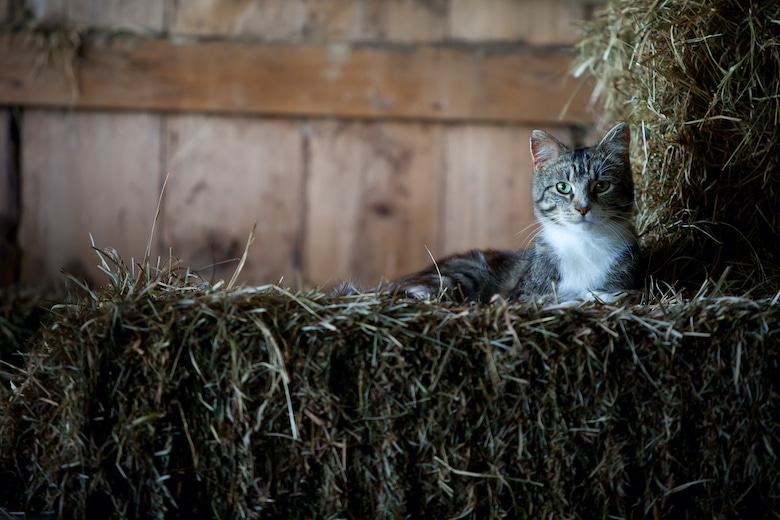
Your barn cats may not come into your home, but they’re in your heart and part of your family. When the temperatures dip, you want to ensure these kitties have everything they need. Because of the way cats have evolved, they often need a little extra TLC in the winter.
“Cats evolved from desert-dwelling ancestors,” said Dr. Jennifer Coates, DVM, who is on the Board of Advisors for Cat Life Today. “They require a little more input from us if they are going to live in an area that isn’t climate controlled. They’re just not behaviorally, anatomically or physiologically adapted to handle very cold temperatures on their own.”
If your barn provides climate control, they don’t need much more than an indoor cat. But if your barn is prone to dipping below 40 degrees, you’ll want to stock pup on a few things. The good news is helping your barn cats get through the winter doesn’t require a whole lot, just a few extra basics. Coates provided a checklist of things your barn cat needs this winter.
Cats have a low thirst drive, but they still need to stay hydrated in cooler temperatures to fend off urinary and kidney issues. Often, barn cats will get water from their prey, but if they eat dry food, Coates says they need to drink more water than comes naturally to them.
But when the weather is colder, the water is chillier and may not be as appealing to a barn cat. Aim to keep water above 40 to 45 degrees.
“A heated water bowl would be a great addition,” Dr. Coates says.

When the temperatures dip, you want to help barn cats get through winter. Photo: ClarkandCompany/Getty Images
Barn cats are known to eat rodents (a win for humans, who want to keep the rodent population in their barns down). Come winter, their natural prey may hunker down more. And when they do hunt, they’ll burn more calories in the cold, Dr. Coates says.
“They need more calories in their diet,” she says. “Fat is the highest calorie ingredient you can include in a cat’s food, but they have high-protein needs as well.”
Be sure to leave plenty of this food out for them to nosh on.
Preventative care doesn’t hibernate during the winter months.
“[Barn cats’] needs for vaccines and parasite prevention is higher than an indoor-only cat,” Dr. Coates says.
It makes sense: Indoor cats are out in the elements and more likely to come into contact with a parasite or animal with a potentially fatal disease, such as rabies. Be sure to be up-to-date on vaccines and monthly preventatives.
Featured Image: Gaussian_Blur/Getty Images
Read Next: Does Your Cat Give Signs That Winter Is Coming?